It’s not often I return to a country more than once.
In fact, it’s basically never.
There’s just too much other stuff to see in the world.
But once, just once, I had to make an exception and that exception was, of course, for my beloved Ethiopia.
Yes here I am, back in the horn of Africa, my second visit in under 3 months!
Can you believe it?!
Well if you were following my journey at the end of last year, probably you can, because you’ll know I fell head over heels in love with this country and met so many great people.
Indeed I felt called to return.
So now having spent 2 months here, and explored most of the country, I’m definitely getting to grips with some of the weird and wonderfully workings of it!
And how weird and wonderful it is!
Here is my comprehensive list of everything you need to know about travel in Ethiopia.
Related Posts
- The Ideal Ethiopia Itinerary
- 15 Safest Countries to Travel in Africa
- Your Unforgettable Africa Itinerary: 1 Week to 3 Months
This page contains affiliate links meaning Big World Small Pockets may receive a small commission on any purchases at no extra cost to you.
Grab Your Copy of My Real Travel Guide to Ethiopia
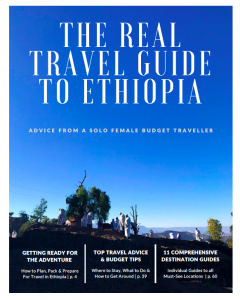
- 11 Complete Destination Guides to the Best Cities & Attractions
- Recommended Places to Stay
- Recommended Guides & Tour Companies + Contact Details
- Money Saving Tips + Budget Planner
- Advice on What to Expect & How to Stay Safe
- Packing Checklist
- Itinerary Schedule
Click Here to Check It Out!
General Tips & Tricks for Ethiopia Travel
#1 There’s 9 UNESCO Sites
The largest number of any African country, Ethiopia has 9 UNESCO World Heritage Sites and all of them are worth visiting!
Perhaps this figure gives you an insight into just how incredible this country’s landscape and culture is!
#2 Amharic is the National Language
Related to Arabic and Hebrew, Amharic is a Semitic language, but possesses its own alphabet and sounds.
Trying to get to grips with it can be an interesting experience!
Besides Amharic there are 83 other languages spoken in Ethiopia that are both regional and tribal and most Ethiopians speak 2 or 3 as a result.
Thankfully, English is widely understood, especially amongst young people and those in the tourism industry!
#3 They’ve Got Their Own Time System
It’s a common maxim that Ethiopians like to do things their own way and the fact that they have their own calendar and time system is a good indicator of this!
Using the Julian calendar, Ethiopia’s month, dates and years are vastly different from the international model.
Their clock also runs differently – namely 6 hours apart the western clock – because their days begins at 12 o’clock, when the sun rises at our 6am!
It’s very important therefore that you qualify all times and dates in Ethiopia by asking constantly asking whether they are referring to Ethiopian or International time!
#4 It’s Safe
Despite what you might think, Ethiopia is incredibly safe, even for solo female travellers.
I’ve never been harassed or had any trouble, even in the capital Addis Ababa.
In fact, I’ve rarely felt more looked after!
Possibly this is something to do with most Ethiopians being devotedly religious people and a cultural expectation that the highest respect and hospitality be shown to visitors.
World Nomads offers simple and flexible travel insurance. Buy at home or while travelling and claim online from anywhere in the world.
Alternatively, if you’re a long-term traveller, digital nomad or frequent remote worker seeking travel health cover, check out Safetywing’s Nomad Insurance policies.
#5 Everything Closes for Lunch
Don’t try to do any errands between the hours of 12pm and 2pm in Ethiopia, everything shuts down for lunch and you’ll end up just wasting time!
This comes from the voice of experience!
#6 Guides Are Great
I’m never one for taking tours or guides, but in Ethiopia it really is a wise decision to do so.
Getting to grips with the history of the country is near impossible without one, and in many towns, learning about the history will be the whole reason you’re there!
I took guides in Axum, Harar and Lalibela and found them all fantastic.
In some parts of the country, guides or tours are also required for example, if you’re heading the Danakil Depression, Simien Mountains or Omo Valley.
In some other cases, it’s almost impossible to get to places without a tour or guide including the Lake Tana Monasteries or the Tigray churches.
Most guides speak excellent English, but do check before paying!
Otherwise, if you’re interested in an unforgettable, well-priced tour in Ethiopia with guides you can trust, then email me at [email protected] with details of where you want to go and I’ll send you my top recommendations – simple!
Alternatively, check out these top picks.
#7 It’s Not As Cheap As You’d Hope
Largely because of the need for guides and tours, Ethiopia is not SUPER cheap (read. it’s still pretty cheap) to travel in.
Accommodation costs can mount up, as can the long domestic travel distances and “tourist tax” is common!
Food and drinks however remains crazily cheap and delicious!
#8 You Gotta Go with the Flow
This is Africa, so expect disorganisation, chaos and plans that quickly change when you’re in Ethiopia!
Trust me, it’s much easier if you’re flexible, just accept the current situation and go with the flow.
Getting stressed and angry won’t change anything and you’ll only end up not enjoying yourself!
Visa Info
#9 Get Your Tourist Visa in Advance
While many nationalities used to be offered visas on arrival at Addis Ababa Bole Airport, this has now changed.
Almost all passport holders must now either get their visa via the official Ethiopian e-visa platform or from their nearest Ethiopian Embassy before travelling.
A valid visa will need to be shown before boarding your flight, as well as at Addis Ababa airport immigration.
It costs $82 USD for a single entry 30 day tourist visa.
Longer visas are also possible for more money.
#10 eVisa Are Handy
Although eVisas might seem like a hassle, in recent years this system has been streamlined and now offers a much smoother and quicker process for tourists than getting your on arrival.
eVisas are accepted at all Ethiopian land, as well as airport, borders.
#11 Multiple Entry Visas No Longer Available
It seems the rules have recently changed on multi-entry visas to Ethiopia… they are no longer being issued.
What to Pack for Ethiopia Travels?
#12 Bring Your European Adapter
The European 2-pin plug is used throughout Ethiopia, so make sure you pack the correct travel adapter.
#13 Prepare for Cold Evenings
Due to the high altitude at which most of the country sits at, Ethiopia can get cold in the evenings, therefore packing several pairs of long trousers, as well as sweaters, scarfs and some thick socks is a great idea.
I love this travel scarf, which would be ideal for Ethiopia.
#14 Grab Gear for Hiking
There’s tons of great hiking opportunities in Ethiopia, so make sure you come prepared.
Hiking boots with good grip are a must, especially if you’re venturing into Simien Mountains, Bale Mountains or Danakil Depression.
I always recommend Keen Targhee II as some of the best and most affordable hiking boots on the market.
#15 Take Toilet Paper
Places often don’t provide toilet paper in Ethiopia, so come stocked with a roll or 2!
#16 Don’t Forget a Headlamp
Frequent power cuts, particularly in rural Ethiopia are common, so be prepared with a good headlamp and spare set of batteries for your travels here.
I love my Black Diamond one, which has served me well throughout Africa.
I guarantee you’ll make good use of it!
#17 Get Snap Happy
Ethiopia is one of the most photogenic countries in the world, so whatever you do, don’t forget to take your camera.
I used my Sony A6000 in Ethiopia and it was absolutely perfect being light, compact and quick to charge.
#18 Moisturiser, Moisturiser and More Moisturiser!
It’s super dry in Ethiopia, with most of the country set in an arid landscape at high altitude; as such your skin will get super dry, super fast!
Bringing a good body moisturiser, face moisturiser and lip balm therefore is key.
I love the Burts Bees range which are well priced, not tested on animals and avoid lots of nasty chemical.
Just enter your details below and I'll email it you - simple!
Information will be sent to the email provided above
A Word on Culture in this Country
#19 You’ll Make Many Friends!
It sounds like a cliché, but Ethiopians genuinely are some of the most hospitable people I’ve ever met.
They have a very social culture and love nothing more than a coffee and a chat!
If you’re open to it, you’ll make tons of friends as everyone tries to practice their English and wants to learn more about other countries around the world.
Please don’t think everyone is trying to rip you off, they’re generally not!
Download Whatsapp before you come to Ethiopia – everybody uses this to communicate – otherwise you’ll miss one of the great experiences of this country, namely hanging with its people.
#20 No Short Shorts
Generally Ethiopians are very proud people and take great care in their appearance.
The culture however is more conservative in its dress standards than you might be used to and wearing shorts or skirts that expose legs is not common.
I generally wear trousers with a singlet, or leggings covered by a dress when I’m here, which works fine.
Across the country you’ll see young and old people wearing a mix of traditional and western clothing – it’s a country that really still combines the old and the new.
#21 Hustle and Hassle is a Fact of Life
Although no way near as bad as I expected before I first got to Ethiopia, some hassle and hustle can occur here, although 99.9% of it is harmless.
Deal with it best by ignoring and not engaging in conversation.
This is especially true with the children, who will follow you for miles otherwise!
#22 Faranji Faranji!
White people in Ethiopia are known as faranjis, while Ethiopians are known as Habesha.
Neither term has a discriminatory connotation to it, so don’t take offence when people refer to you as a faranji, as they inevitably will!
#23 The Music and Dancing are Crazy
There’s few things that demonstrate Ethiopians’ unique culture more, even in today’s world, than their music and their dancing!
It’s all bonkers!
Head to what is known as a Traditional Restaurant in any large town and see it for yourself.
Otherwise any local club is also an amusing cultural experience!
#24 There’s Several Ways to Greet
Ethiopians have a complex array of ways to greet each other, from simple handshakes to multiple cheek kisses, or my favourite, the shoulder bump!
Try out as many as you like and get into the spirit of this social society!
#25 It’s a Tactile Culture
Ethiopians are very tactile too, so don’t freak out if people put their hand on your shoulder, for example, when they are talking to you!
Quite often on the street, you’ll see Ethiopians, men included, holding hands as a sign of friendship.
Ethiopian Food
#26 The Food is Amazing
A huge part of Ethiopian culture is food and coffee.
It’s all delicious cheap and readily available!
#27 It’s Vegetarian Friendly
Christian Orthodox Ethiopians, which make up the biggest religious group, actually fast every Wednesday and Friday, as well as during the lead-up to many religious celebrations.
In fasting, they avoid all rich foods like meat and dairy products.
This makes Ethiopia incredibly vegetarian and vegan friendly as all menus will have fasting options regardless of the time of year.
Shiro is the most common veggie food – a chickpea dahl-type dish – served on top of an injera – yum!
#28 Injera is the Staple
The staple of Ethiopian cuisine is injera, a huge fermented pancake made from a grain called Teff.
Gluten-free and delicious, it’s served with almost every meal often in the place of a plate and cutlery!
#29 Salad and Fruits are Big
Ethiopians also tend to eat very healthily and fresh salads are readily available as are some incredible natural fruit juices, including avocado, papaya and pineapple, normally served with fresh lime.
Desserts aren’t common – probably why most of the country are so slim!
#30 Forget the Fork
Most Ethiopian cuisine is eaten with your right hand, often using a torn piece of the injera as a scoop.
It’s common that you won’t even find any cutlery to use!
Most restaurants and cafes have a handwashing station for you to use before and after your meal.
#31 Coffee, Coffee, Coffee
Famous the world over, Ethiopia is meant to be the home of coffee and here it’s almost a sacred drink.
Called ‘buna’ in Amharic, you can grab a shot of this black gold almost anywhere, including on the street for as little as 5 Birr at side stalls.
Traditionally served as part of a ceremony, the coffee beans are roasted and passed around for you to inhale the scent.
The coffee is then served in 3 rounds, the first being the strongest out of a special jug, which is kept hot on an open fire as incense wafts in the air.
It’s normally served with sugar, so make sure you stipulate no sugar if you want to avoid the sweetness.
#32 Local Beer and Wines are Great
Who knew Ethiopia was a producer of wine, but they are and it’s good.
Local beers are also good and abundant.
My favourite is called Habesha.
Accessing & Spending Money
#33 Get Your Birr On!
The local currency in Ethiopia is the Birr (ETB).
It can’t be bought outside the country, so must be got either via exchanging USD at local banks or by using ATM machines.
You’re also not allowed to take more than 200 Birr out of the country when you leave.
#34 The Notes
Many Birr notes can look a bit scrubby at best!
They come in denominations of 5, 10, 20, 50 and 100. There’s also a range of coins.
100 Birr, is actually only worth around 4 USD!
This is largely due to the recent and rapid growth of the Ethiopian economy.
However, it doesn’t seem like the national mint has caught up yet by bringing out a higher value note!
This means a spacious wallet is required when you to visit Ethiopia as you’ll inevitably be carrying around lots and lots of notes!
#35 Exchange at the Airport
When you arrive at Bole International Airport in Addis, you’ll find several Bureau de Change offices and also ATM’s both before and after immigration.
The current exchange rate is around 27 Birr to 1 USD at the airport and it’s the same offered at banks across the country, so you might as well change money as soon as you arrive.
Just remember to keep any exchange receipts, you’re meant to present these when exiting the country.
#36 ATMs are Easy
ATMs are plentiful in Ethiopia and easy to use with instructions in English.
They generally accept both Visa and Mastercard – although Visa is more useful.
Commercial Bank are one of the most trusted providers.
And when it comes to using ATMs, the easy way to spend abroad with real exchange rates, no markups and no sneaky transaction fees, is with a Wise card, which works just like a debit card here. Grab yours here.
#37 Bring Big Bill USD
People only really want to exchange USD in Ethiopia and even Euros and British Pounds are likely to be denied.
Therefore bring lots of USD cash, if you want to avoid ATM withdrawal fees and change these for Birr.
Bigger notes will give you a better exchange rate on the black market, so stock up on $50 and $100 bills if you can.
If you’re travelling in other African countries before you arrive into Ethiopia, it’s recommended you get the local currency there changed into USD, so you have plenty for Ethiopia when you arrive.
How to Get Around Ethiopia?
#38 Roads Are Bad
Many roads in Ethiopia are pretty bad and getting between destinations in this huge country can take you forever via land.
In many parts of the country, road travel is restricted at night too, which generally means a long journey can take a few days and often involve an overnight stay somewhere along the way.
As such many tourists opt to fly around the country instead.
Especially if you’re short on time, using Ethiopia Airlines’ domestic services to hop between destinations quickly and safely is a great idea.
#39 Book Your International Flight with Ethiopia Airlines
Ethiopia Airlines are the national carrier and have a huge range of domestic flights that can jet you around the country in no time.
Prices work on a 2 tier system – loosely indicated as a local and foreign rate.
However as a tourist, you can access the cheaper local rates (which are up to two-thirds cheaper) be buying an international flight into the country with Ethiopia Airlines.
You can then use your international flight code to access the cheaper local rates when booking domestic flights.
Even if the international flight with Ethiopia Airlines costs a few dollars more, you’ll quickly reap the rewards if you’re flying domestic a lot, trust me!
UPDATE JAN 19: Ethiopian Airlines now have an app and by using it to book flights you can save a further 10% on the ticket price.
#40 Don’t Rush to Buy Domestic Flights
You can easily book domestic flights in Ethiopia just a few days before you fly.
3 days in advance should be fine.
Prices don’t go up nearer the time and flights rarely sell out more than a couple of days in advance.
If you have a quick itinerary however, you may want to buy domestic flights from outside Ethiopia before you arrive.
This is easy to do online or via local tour operator ETT – who you can email your requirements and then pay in USD cash when you arrive into Addis.
#41 Get to the Airport Early
Even for domestic flights, ensure you allow plenty of time once you get to the airport.
There’s rigorous security at all Ethiopian airports and you’ll have to go through security first to enter the building and then to enter the gate.
This can take a while!
TOP TIP: When you arrive at Bole International Airport in Addis it’s easy to pick up a taxi outside. There’s hardly any hassle, which is a major relief, but do ask to see the brochure of official rates (which exists!) so you don’t get ripped off on the journey to your hotel.
#42 Get Some Sheba Miles
Ethiopia Airlines are part of the Star Alliance Group.
Check their website for partner carriers to earn points, or easily sign up to their scheme – Sheba Miles – and earn points which can be used in conjunction with Egypt Air among many others.
If you’re flying a lot in Ethiopia it soon mounts up and I’ve already scooped a few free flights as a result!
#43 Sky or Selam Bus are Great
If you don’t want to fly around the country, then there are some luxury coaches that travel similar routes.
Sky Bus, Ethio Bus and Selam Bus are the 2 biggest companies and timetables can be viewed online.
Tickets however need to be bought in person at the nearest office and it’s a good idea to do this at least a day before.
Most towns have ticket offices.
Due to the distances involved and the fact these buses don’t drive after dark, departures are normally around 4 or 5am!
#44 Enjoy the Minivan Madness
In Addis Ababa and other large cities, minivans are used to travel short distances.
Minivans are also used as the cheapest form of transport to travel between some cities.
Costing only a few Birr, they are confusingly called taxis!
#45 Know the Difference Between Taxis
With minivans being known as taxis and taxis being known as taxis, things can get confusing in Ethiopia!
The basic rule of thumb is that public taxis = minivans and contract taxis = taxis!
#46 A Bajaj is a Tuk Tuk
In smaller destinations, tuk-tuks also ply the streets and are generally a cheap and convenient option for getting to attractions or restaurants.
In Ethiopia however, they are known Bajaj so use this word if people are looking at you confusingly when you ask for a tuk-tuk!
Ethiopian Accommodation
#47 Hostels Aren’t a Thing
Hostels don’t really exist in Ethiopia, so look for budget guesthouses if you’re backpacking.
These can be found almost everywhere and are generally private rooms, normally with ensuite bathrooms and possibly wifi / breakfast included.
Prices start from around 300 birr, which is about $15 USD per night.
You’ll be hard pushed to find anything under $10 USD.
#48 Most Guesthouses have Laundry Facilities
Every guesthouse I’ve stayed at in Ethiopia has offered a laundry service, making it the most convenient place to get your clothes washed.
There generally aren’t handwashing facilities at hotels / guesthouses in Ethiopia, meaning you have to get your clothes laundered unless you want to take them in shower with you!
Prices are normally around 6 Birr per piece and hand washed by local women, providing a valuable source of extra income.
Give your washing in at breakfast time and receive it by the evening.
Sometimes they’ll ask you to provide your own soap!
#49 Use Booking.com to Find Accommodation
Most Ethiopian accommodation providers use Booking.com to market their rooms.
This gives you free cancellation as generally you just pay on arrival.
Hostelworld is slowly gaining momentum too.
#50 There Aren’t Guest Kitchens
The vast majority of guesthouses in Ethiopia don’t offer kitchens, but eating out is so cheap anyway it’s no biggie.
One exception I found was the excellent Mr Martin’s Cozy Place in Addis Ababa.
This great guesthouse has free wifi, free breakfast and a guest kitchen!
It’s also excellently located in the Bole area of Addis Ababa.
Read my full review of Mr Martin’s Cozy Place here.
#51 Security is Good
All guesthouses generally have 24hr security access as well as lockable front gates.
This makes them very secure and I’ve felt safe in every place I’ve stayed.
Internet and Phone Access
#52 There’s Only 1 Provider
There’s just 1 telecommunication provider in Ethiopia, known as Ethio Telecom, which makes things simple in one way and difficult in others!
#53 Get a Local SIM
Getting a local SIM is cheap (30 Birr) and highly recommended for travel in Ethiopia when you’ll likely need to call guesthouses, tour companies etc.
SIM cards can be bought in the morning (Mon-Sat) from any Ethio Telecom shop.
Take your passport and some money to pay for the SIM as well as put credit on your phone via the voucher system.
Make sure to get your SIM registered (required by the government here) and your personal hotspot established.
Check everything is working before you leave the office!
*804# can be dialled to check your balance.
#54 Buy Mobile Packages
Data, call and SMS packages can be bought on a daily, weekend, weekly or monthly basis by dialling *999# on your handset.
This is the most cost-effective way to use your Ethio SIM.
I love the monthly 600 birr package, which gives 4GB of data.
#55 Addis is the Best for Wifi
Unsurprisingly, the capital Addis Ababa has the best internet and 3G connection in the country.
You’ll need to hang here a lot if you work online!
Anywhere outside of Addis and connections can be patchy, especially 3G, which the government often shuts off completely. HA!
#56 Airports have Free Wifi
Almost all airports in Ethiopia have free wifi and weirdly I’ve found it to be some of the fastest in the country.
Most guesthouses now also provide free wifi, although to what extent it works is another matter!
#57 Get a VPN
As well as blocking 3G networks, the Ethiopian government also regularly blocks social media channels.
Maintain access to your Facebook and Instagram therefore by subscribing to a VPN before you get here.
I highly recommend Nord VPN, which I’ve used in Ethiopia and works brilliantly.
SAVE THIS ARTICLE TO PINTEREST!
Phew!
So there you have it, EVERYTHING you need to know about travel in Ethiopia.
Are you planning to visit this amazing African country?
Have any questions?
Please ask away in the comments box below…

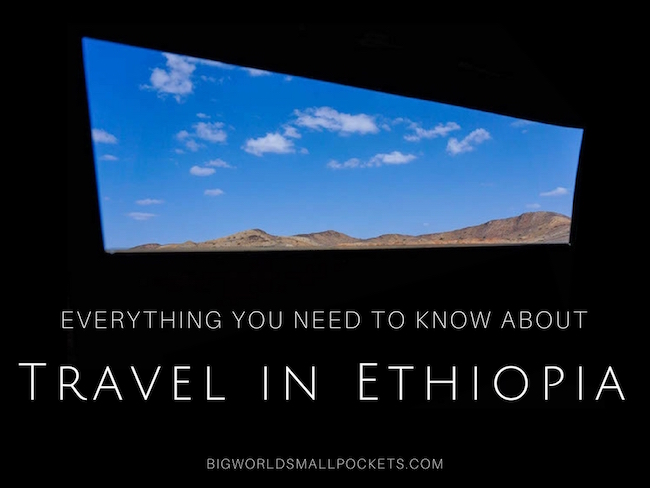
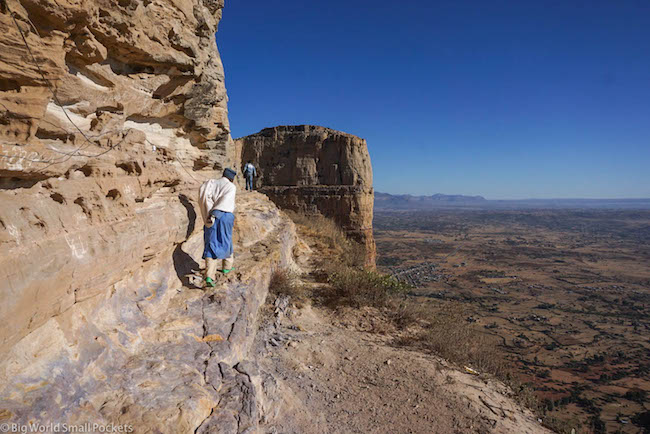

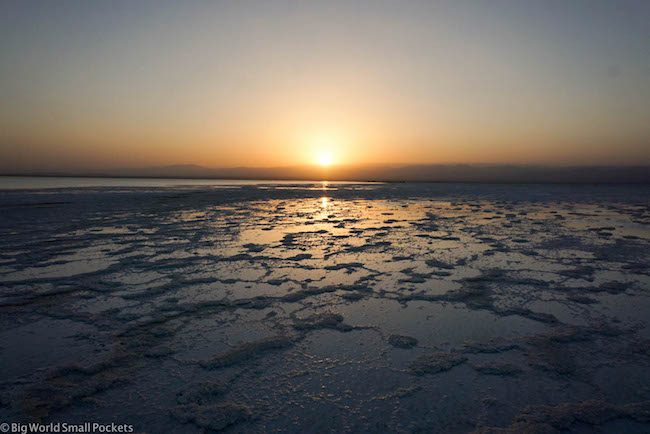
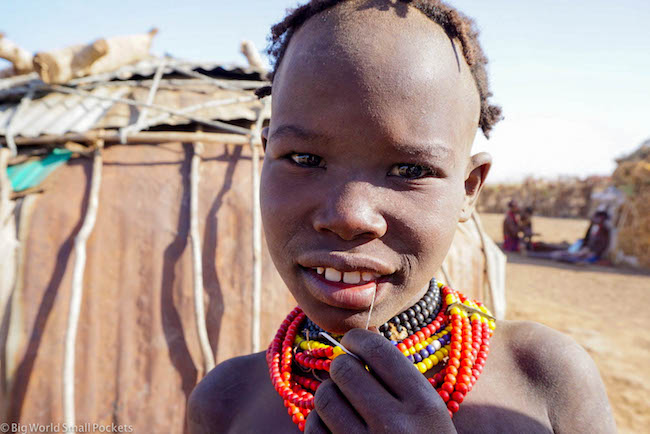
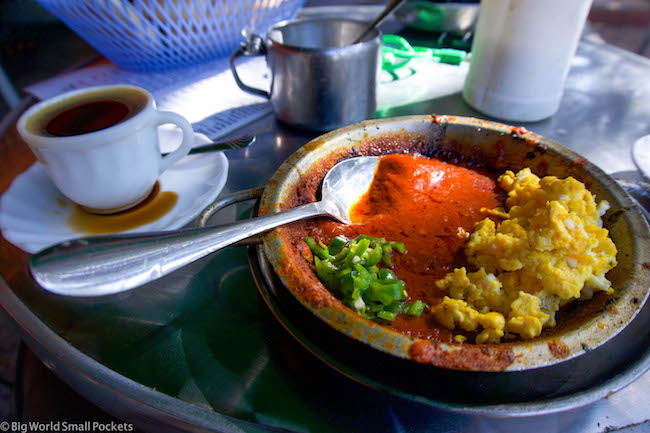
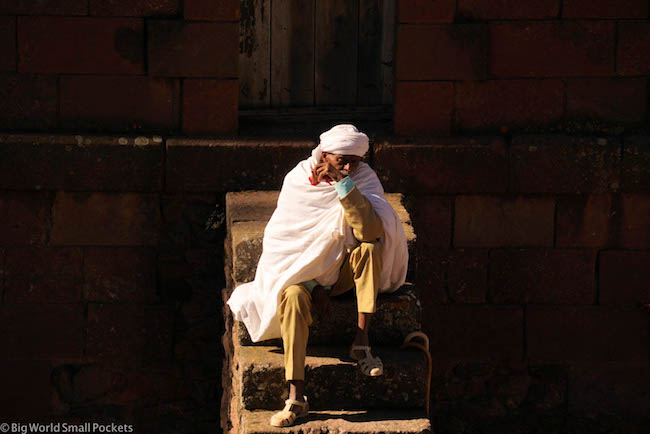
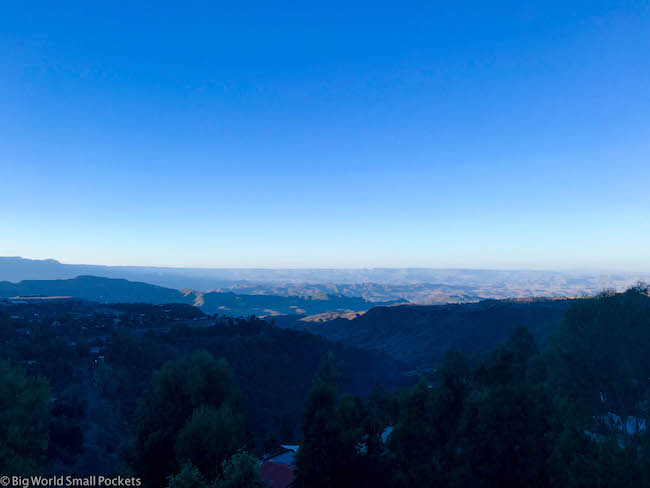

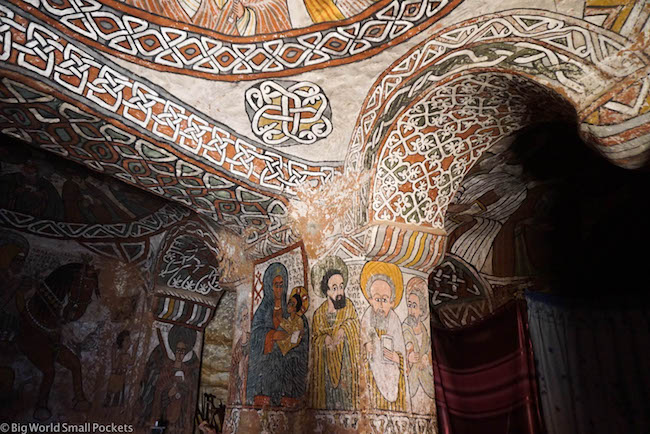
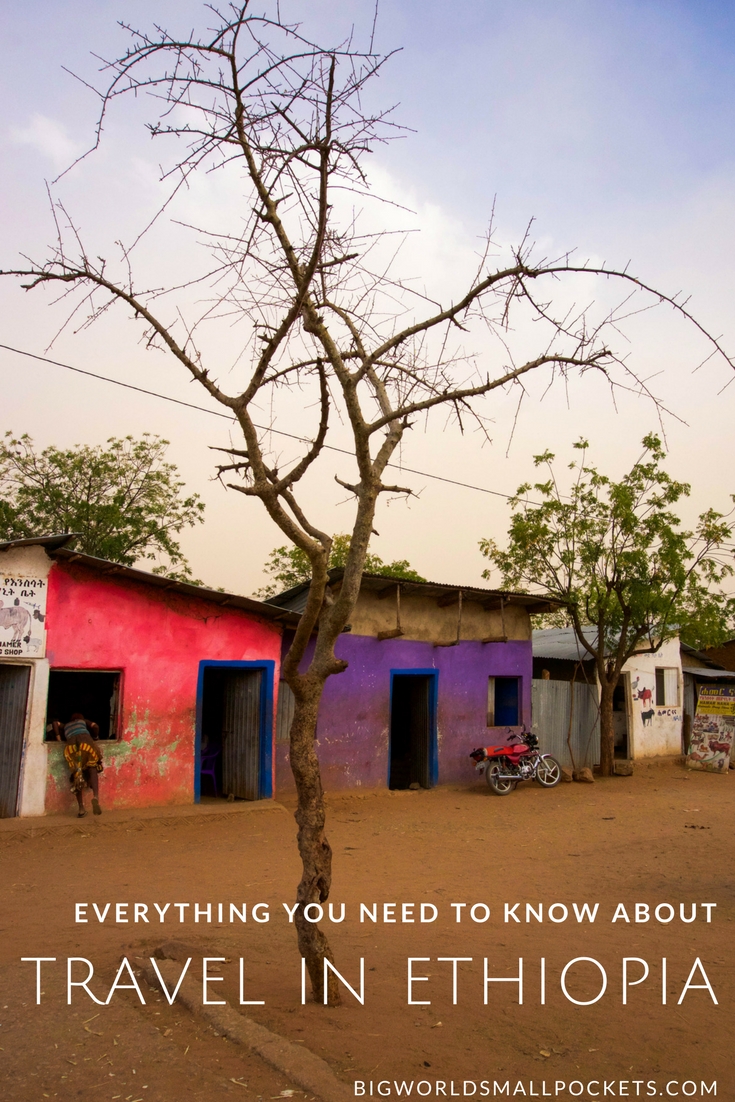
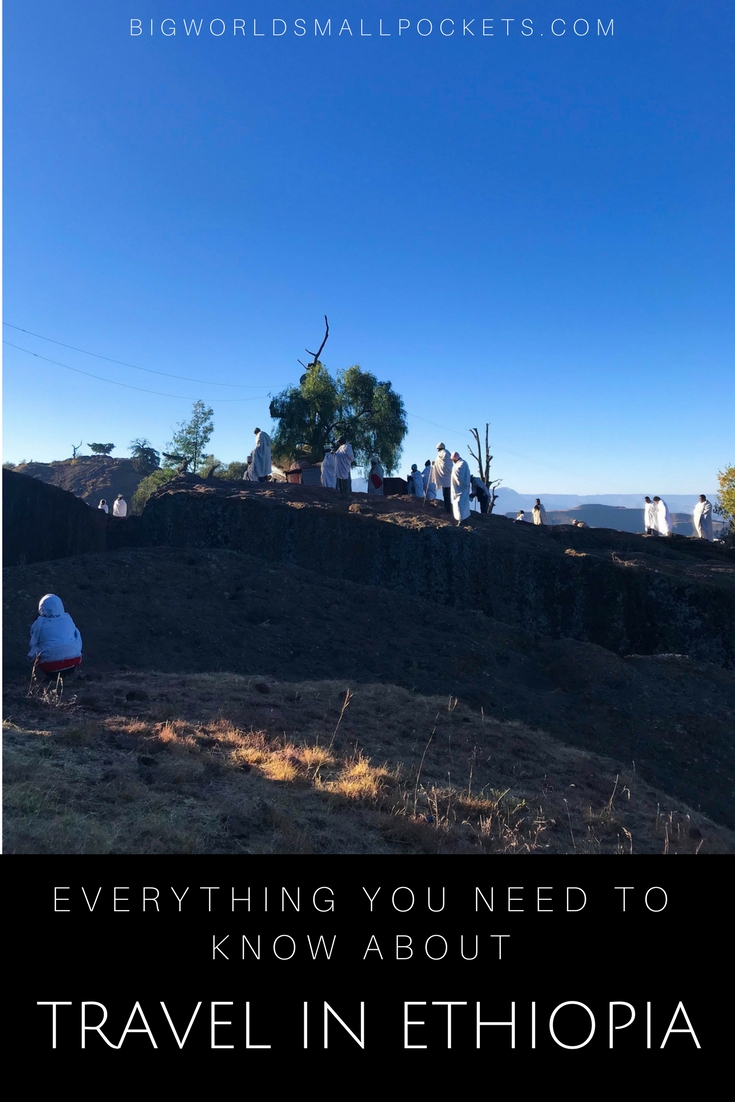
That was totally true, like 100%. I’m shocked on how much u know. I mean, I’m Ethiopian and I couldn’t have described better than this. Well Done 🙂
Wow Rachel, high praise indeed! Thank you so so much, this means A LOT 🙂
Indeed
wow that helped me a lot. hope to visit ethiopia soon.
thanks you steph.
Thanks Amir, so delighted to hear this article was helpful. Really happy you plan to visit this amazing country soon 🙂
You’re welcome anytime
Excellent info provided for traveling to Ethiopia. If I plan to be in two areas for less than 2 days a piece or so, is it worth it for the Sim card for phone use? Or can I use Whatapp for contacting folks? I also sent you an email regarding safety in going to Lalibela and Axum in August 2018.
Thank you in advance!
Hi Terri, great question about the SIM. If you’re only in Ethiopia for 4 days it may not be worth it, especially as places that are remote such as the Simien, Danakil and Omo Valley can be a struggle for reception anyway. That said, while many accommodation places have wifi in Ethiopia, it’s far from a guarantee and can be patchy and slow at best sometimes! You can definitely use Whatsapp if you can get wifi! Answering your email now. Best, Steph 🙂
I love all your explanation, and suggestions. thank you!!
Thank you Henok! Best Steph 🙂
Hey Steph huh
I’m from Nigeria and I plan to stay there for 30 days
What’s the average amount I would spend there
In USD
Hi Riche, thanks for your question. It’s really hard for me to give you an answer on this for several reasons 1) what time of accommodation are you looking for 2) will you fly or bus around the country and 3) how many tours do you want to take to places like the Danakil or Omo Valley. These factors will wildly alter your budget. Perhaps if you can give me some more info on these points I can help you better 🙂
This is SO helpful already! Thanks a bunch. We may have more questions as we get closer to our December trip. Love it! Getting excited…
Hi Jenn, so delighted to hear you found the post helpful. PLEASE, don’t hesitate to get in touch with any question about Ethiopia – love talking about that place and am more than happy to help others discover it whenever I can 🙂
wow steph you described my country well
Thanks Tesfa, that’s such a wonderful compliment to hear!
thanks, great loads of information. Quick question on your visa recommendation, can you get a multiple entry one upon arriving at the airport?
Hi Francois and delighted you found the article helpful. Giving visa information is always tricky, because there are so many variables depending on where you come from and the information is quickly outdated. As such, please check with the foreign office of your home country and Ethiopia to learn the latest. All I can tell you is that when I last visited Ethiopia, as a British citizen I was not eligible for a multi-entry visa on arrival. However, as I said this may have changed, so please do check for yourself to be sure of the most up-to-date info. Best
Thank you so much for the detailed list!! Is it possible to get away with using a roller carry on luggage or is a backpack best?
You could definitely get away with a roller carry on in Ethiopia Vero if you’re planning on using domestic flights rather buses and not doing a multi-day trek in Simien or Bale Mountains.
really like that place .. its enjoying my self at here
Awesome to hear Jay 🙂
The best rundown that I’ve seen so far. Thank you for all of the logistical info. Every question I had, you answered (including what neighborhood to stay in). I’ll be in Addis for 3.5 days with my flight layover and can’t wait to eat all the food!
Hey Heather, thank you so much for these gorgeous comments – truly delighted to hear you found the post useful. I basically wrote it thinking about everything I had in mind before I travelled to Ethiopia but couldn’t discover online, so glad I’ve managed to help another traveller out. Enjoy Addis, the food and this amazing country 🙂
Hi Heather, Were you able to get a transit visa for 3.5 days? Thank you.
This is an AWESOME list!!! I’m heading to Ethiopia in 2 days for a month and am I glad I stumbled upon your post 🙂 (specially regarding bus companies)
Thanks for sharing!!!
Hi Dan, thanks your comments and so happy to hear the post will help! Enjoy this amazing country 🙂
Thanks for the useful tips, great starting point for our upcoming trip in April.
We will be visiting Lalibela, flying there and back from Addis. As it happens, we fly to Ethiopia with Ethiopian Airlines, so I was wondering how to book the 2/3 cheaper domestic flights that you pointed to- where do I find the code?
Would it be better to wait till we are there and book locally? You said it doesn’t make a difference…
Thanks a bunch
Hi Susanne, thanks for the question and delighted to hear you will be travelling to Ethiopia soon. If you go to the Ethiopia Airlines website, when you search a flight and then head through to book it, it will ask if you hold an international ticket with the company – tick yes at this stage, enter your International e-ticket number if prompted and then you’ll be eligible for the local domestic flight rates. Alternatively, you can book when in the country, but online or via the app tends to be cheaper as of this year. Hope that helps 🙂
Thank you so much for taking the time to reply Steph, the recommendation to book online is very useful as I was about to leave it till we get there and book in Addis, but if it cost potentially more, I’ll get on with it now.
Great idea Susanne, glad I could help. Enjoy Ethiopia, you’re going to love it!
Hi Steph,
Thank you so much for this super useful article. We are going in April and are super excited. We will be there only for 2 weeks and plan to take a domestic flight to Lalibela. Would you recommend a taxi driver for us? As we don’t have a lot of time, we think it would be best to have a driver and not to take bus. Did you book your hotel one or 2 days ahead or much more in advance ? Thank you so much again !
Véro
Hi Véro, thanks for your lovely words and so happy you find the article useful. I also have a full blog post guide to Lalibela, so please search there as it gives all my recommendations for accommodation and guides in this city plus LOADS more info. Booking accommodation a few days in advance should be fine – unless you’re travelling at Easter time when Lalibela will be busy. Buses aren’t a possibility in Lalibela – you can visit the town churches on foot, but will need a guide with a driver if you want to hike around the city to the churches outside. Your hotel should organise an airport shuttle for you. Hope that helps 🙂
I love the way you described and wrote the tips. They are just perfect for a traveler interested in coming to Ethiopia for their very first time. I love Ethiopia just like i love my country Uganda. It has lots of things to see like gorillas, chimps, big 5 game, over 1000 bird species, hiking, rafting, kayaking, zip lining, sport fishing etc
Thanks guys. Yes I love Ethiopia and Uganda, although only the latter has the wealth of wildlife and activities you describe. Ethiopia certainly does not have gorillas etc!
Hello
Thanks very very much for your wunderfull explanation. It helps very much to have an idea before. We are from Portugal and goes next month. Thanks Thanks, Fred, Manuel, Hans and Renee.
Hi Paulo, thanks for these lovely words and hope you enjoy your trip to Ethiopia 🙂
Thank you! We are a middle-aged adventurous couple and wondering about a guide. Recommendations? Two week trip. North and South. Thank you
Certainly Adele, always happy to help. Can you email me on [email protected] and I can pass on more details that way – lots of options and all a bit much to go into here. Thanks 🙂
Wow! Amazing guide and tips to know before traveling to the beautiful and wild Ethiopia. As ethiopian and passionate traveller, I appreciate a lot this kind of contributions to help the others with their planning trip. You already say this but double check: Be sure don’t miss the tipical food, because a huge part of Ethiopian culture is food and coffee, even it’s Vegetarian Friendly! Ah, in addition, remember also to get your electronic visa in advance so you can save a precious time :=)
Thanks for the comments – the food is a must I agree. The eVisa is not! Every time I arrive, the eVisa queue and the visa on arrival queue are the same length! Also I think that if you need longer than 1 month or you need a multi-entry visa you must get on arrival, correct? Thanks, Steph
Hi Steph,
Your blog proved to be very helpful! My dad was born and raised in Ethiopia but has not been back since the 70’s. We are planning a trip for Nov 2019 and I am very excited!!! However, I noticed the U.S. government just issued a ‘travel with caution’ advisory for Ethiopia and a ‘do not travel’ advisory for several regions of the country due to current civil unrest. Do you know if this advisory was posted when you went? Any thoughts on the safety of traveling to Ethiopia this year?
Hi Andrea, thanks for reaching out and very excited to hear your Dad was born in Ethiopia – wow! I was last in the country in Jan 2019 (I’m writing this comment in April 2019) so I’m not sure when the warning was published by the US government. To be honest, I’m always a bit sceptical of their warnings – they tend to be quite disproportionate in my experience. The British Foreign Office advice tends to be a lot more balanced in my opinion (I’m not biased honest!) You can check it out here: https://www.gov.uk/foreign-travel-advice/ethiopia . I can’t speak for you or your safety, but would I go back to Ethiopia now? … heck yes! I’d just monitor which regions I travelled in as always and seek information on the ground. Hope that helps 🙂
hello from the beautiful Pakistan. I am a solo traveler. After completing Asia im off to Africa now. Went to Kenya last year and loved it. Now i have options between Ethiopia and Uganda. What would you suggest in terms of security, diversity, prices, hospitality, etc etc,etc? etc means the things we solo travelers look for hahaha. By the way most welcome to Pakistan anytime and you will find worlds 6 biggest mountains, worlds deepest seaport and worlds biggest agricultural/irrational system and above all great hospitality. Be my guest anytime. my email id is [email protected]
Moeed, thanks for your comments and excited to hear of your Africa travels plans. Ethiopia and Uganda are wildly different and hard to compare. Probably Uganda is a little cheaper, but it totally depends on how many adventure activities/safaris etc you want to do. If you trek to see the gorillas, for example, this will wildly raise your budget. Ethiopia is less about wildlife (although there is some) and more about the unique culture, food, coffee, landscapes, hiking etc. Honestly, it depends what you enjoy more. I am hoping to travel to Pakistan soon and am very excited about it! What is the best time of year to visit your country?
Hello, I sent you an email, but figured it would hurt to message you here as well. I am headed to Ethiopia in October and Harar , Omo valley, Axum and Lalibela.
My main interest is the people, the traditions, the food and the religion. How long would I need, what is the best way to get around. Any help would be greatly appreciated. I am ready to be a sponge and soak up the knowledge.
thanks
P
Hi Paul, I wrote you an email back this morning with info. Let me know if you didn’t receive it or if you have any more Q’s on the back of it. Best, Steph
Hi, Steph! I am heading to Ethiopia in November for 12 days, covering Addis Ababa, Gondar, Lalibela, Simien Mountains and Omo Valley. I seem to read different opinions about vaccinations. I know they are not mandatory, but some of them are stronlgy recommended (depending also on the lenght of one’s stay) and some people said they’ve had them as a necessary precaution, some say they did not and are not necessary at all. What can you advise me on this matter?
Hi Florentina, my advice is to consult a travel health professional, tell them your plans, your medical history and follow what they suggest. I’m certainly not qualified to give advice in this area I’m afraid. Enjoy Ethiopia 🙂
Everything is so well written, you did an amazing job.
Thanks so much 🙂
Hi Steph! Me an my wife will be travelling to Ethiopia next february. Are there any hidden gems close to Addis Abeba? How is Adamo and Awasa?
Hi Nicklas, I’ve actually written a post about the 5 best day trips from Addis, so do search that on my site for some good ideas of things to do around the city, it includes Awasa, but sadly I haven’t made it to Adamo yet. Enjoy Ethiopia 🙂
Wow I’m Ethiopian my self but although I was born there I haven’t been to the country since I was 8 months old! I’m 11 now and we’re finally going back there for vacation. This was super helpful to me and now, thanks Tom you, I’m all ready to go!! Thanks so much for telling me things I never really new about my culture. But Everything I did know was true. 😁
Diddy, this is such a beautiful comment to receive and made my day. Such an honour to hear these positive thoughts from an Ethiopian – I feel honoured! Hope you have an amazing trip to the country 🙂
My daughter lives in Ethiopia and I am going to visit. She wants to go to the Danakil Depression for a 3 day trip but I am very leery due to the facts I read on the travel to and from there about the roads. I have heard that they are “ the worst roads in the world” . I told her I’d prefer going to Gambella or Awash instead.
Thoughts?
Hi Christine, the roads that do exist in the Danakil area are actually good, the problem is that often there aren’t any roads, this is a wild, desert / lava / salt pan terrain. Take a look at my specific article on the Danakil to view pictures and learn more. You can find it by typing “Danakil” into the search bar at the top right of corner of my site.
My daughter is currently in Ethiopia and was gifted a beautiful full sized mesob. Do you have any tips for the best way to get it back home to the US?
Sorry Dee, I don’t have any experience on this front.. what a beautiful gift though!
Thanks for such awesome tips! We are going there on 20 of September and I just can’t wait! We are also going to visit Simien Mountains ^_^. I have also showed mu husband your suggestion on a NordVPN and we bought it as well. Thanks a lot! Very great app and not expensive! We have watched other countries Netflix already and thats great! Oh boy, can’t wait for our holiday!
Amazing Natalie! So excited to hear you are looking forward to your time in Ethiopia. Know you’re going to love it… enjoy 🙂
Thank you, I left Ethiopia a long time ago, and your article had information I needed, made me a bit homesick, and gave me ideas on how to show my son the rich tradition and culture he comes from.
Thank you, and safe travels wherever your next destination takes you.
Thanks Natti and hope you and your son enjoy your time in Ethiopia, Steph 🙂
Hi Steph, great blog- thanks so much for covering it in so much detail! How would you suggest is the best way to commute within the city of Addis? I am staying at the MM Cozy Place Guest House after reading your recommendation but was wondering how to get to and from the airport from there!
Hi Suparna, there’s a section in this post about how to get to and from the airport using local taxis. Where they are and how to get the best rate. I also mention Whatsapp and taking your phone for Google maps / maps.me.
Hello,
this was really helpful. We are planing a trip there with a friend for January. We will stay a couple of weeks and we want to have the best experience ever (everyone does I suppose). We are mainly interested to beautiful landscapes, music heritage (being musicians ourselves) and food.
Is there a plan that you would suggest with the must ?
All the best from Greece,
Theodore
Hi Theodoros – great to hear you will travel to Ethiopia in January. I have an itinerary article on the blog with lots of ideas for routes that take in the best of this country. Suggest you take a look at that for my ideas around the must-see highlights. Then, if you have any more questions, do feel free to send me an email. Best, Steph
I am hoping to go to Ethiopia next year, I have enjoyed reading your guide. Thank you
Hi Tracey, thank you so much for leaving a comment and delighted my Ethiopia content has helped you. Happy travels 🙂
Hi Steph,
Great write up with excellent details. As a solo traveler who plans to visit africa in april for the first time i was wondering would you reccommend kenya, ethiopia or uganda if i had interests that consists of nature, safaris, culture, nightlife, food, ability to meet locals and ease of transportation? Any help based on your experience would be very helpful!
Hi Trav, great question. If you want to include safaris, then I’d recommend either Uganda or Kenya – both of these tick all your boxes… apart from maybe nightlife (and food?)! Ethiopia is best for the food! Steph 🙂
Hi Steph,
thank you for the blig about Ethiopia. I am currently in Addis and want to go to Gondar, Lalibela and Bahir Dar by bus. Some locals advised me not to as there’s still some violance and tribal/political unrest. I was advised to fly instead, which I’m avoiding as much as possible. Do you have an update on that. Thanks a lot. Vako.
Hi Vako, I don’t I’m afraid as the situation changes very rapidly and there’s no way I can keep up! Check gov.uk – the British government foreign office website – which has detailed and up-to-date security information about every country in the world. Also locals on the ground often know best, but ask around to get a few different opinions. Best of luck, Steph 🙂
Hi, Is it necessary to vaccinate for Malaria if going to Ethiopia?
Hi there, as I’m not a medical professional, I can’t advise you on this I’m afriad. Please consult a travel health doctor prior to your departure for more information. I always advise this before all trips to this continent. Best, Steph
Hello there, thanks for the detailed breakdown of your experiences advise in Ethiopia. My husband and I are planning to travel there in a few days and would like to do a three day trek to the Simien Mountains. We would like to travel on to Aksum. Do yo have any advice on the preferable route; driver from Imet Gogo, bus or flight? Thanks again! Samantha
Hi Samantha, if you check out both my posts on Axum and the Simien Mountains, you can discover more about how to travel between the 2. In short form however, you can get a bus between Debark and Axum, or return to Gonder and from there fly to Axum. Happy travels, Steph 🙂